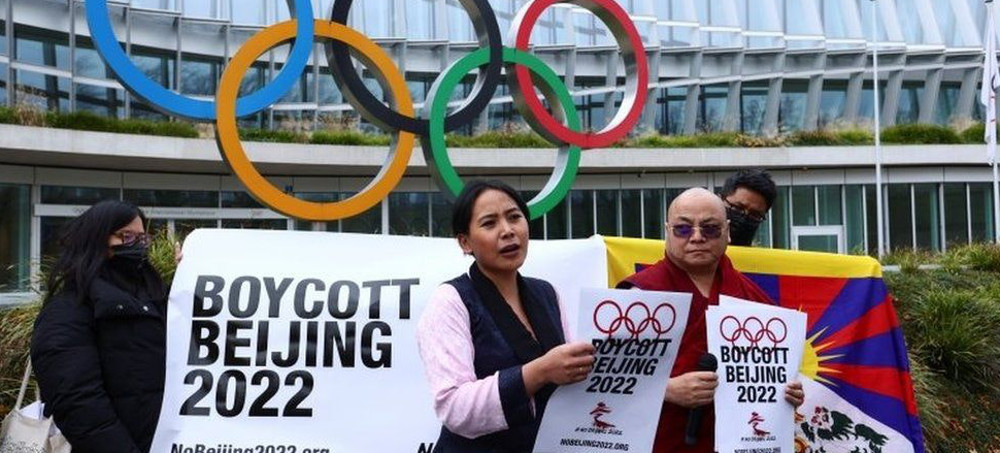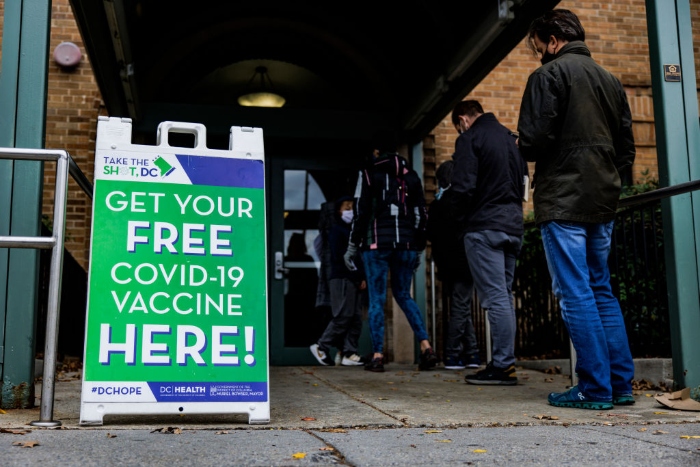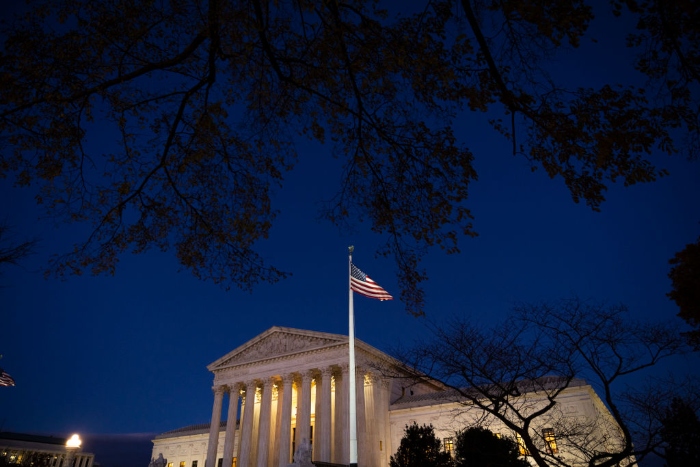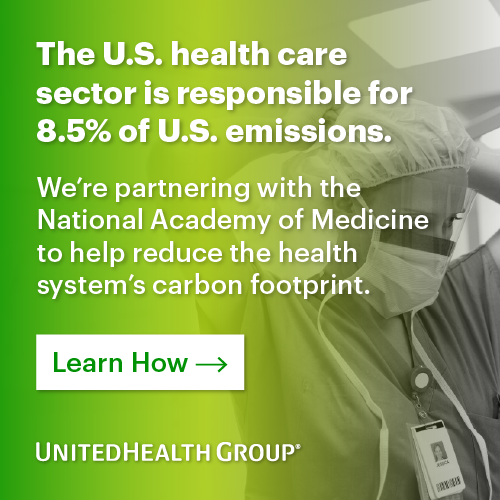Live on the homepage now!
Reader Supported News
But there’s nothing cute about the way China has been treating us—or our submissive reaction.
I’m uncomfortable criticizing China because it can serve as justification for knuckle-dragging racist blame-bots to harass Asian Americans. Unfortunately, we shouldn’t let childish Flat-Earth mentality stop the adults from having necessary discussions about important world affairs.
We can’t ignore China’s attacks—both overt and subtle—on the United States, nor can we ignore its oppressive policies. China is like Jason Bateman’s character in Ozark: smooth and charming on the outside, but everyone he touches either becomes corrupt or dies.
China’s Concentration Camps Repress Millions
Despite the beauty of China’s culture and history of artistic and intellectual achievements, the current regime is no friend to freedom. Its repression in Hong Kong of the free press, protestors, and elected officials who disagree with mainland policies is the opposite of everything we stand for. Since 2014, it has imprisoned up to two million Muslims, mostly Uyghurs, in forced labor concentration camps (which it refers to as “reeducation camps”), restricting their religious practices and forcing sterilization. Detainees have been subjected to torture and rape and their children have been sent to orphanages.
The U.S. government has not been silent. It has sanctioned Chinese officials and blacklisted agencies and products profiting from the forced labor. In 2021, the U.S. declared China’s behavior to be genocide and crimes against humanity. But the behavior continues unabated and China’s impact on American society rolls merrily along.
China Is Rewriting Hollywood
In 2020, China surpassed North America as the world’s biggest movie market. With nearly twice as many movie screens in China than in the U.S., Hollywood has made concessions in order not to alienate China’s massive movie-going audience. Most famous was the cringeworthy apology from John Cena on May 25, 2021 in which he appears to be groveling in Mandarin as penance for referring to Taiwan as a country. The reason for his self-debasement is that his movie, Fast and Furious 9, was co-produced with the state-owned China Film Group Corporation.
This is not about Cena, who is a great athlete and an entertaining actor (Peacemaker on HBO is terrific). This is about a famous public figure humiliating himself, and to some extent America, for the sake of a movie and his career. I’m not even against his apology as much as the embarrassing overkill in the pursuit of money.
The recent movie 355 is no better. The film is a fun but familiar spy thriller about a group of highly skilled women saving the world. The problem comes when the Chinese agent, vaguely said to work for the government, offers to turn over to the CIA the device that can hack any computer and shut down entire countries. The film also suggests that, while the spy agencies of the governments of the US, England, and Germany (where the women agents work) are corrupt, the Chinese government is selfless. This bit of propaganda, as tasteless as unsalted popcorn, is because the film was co-financed by Beijing-based Huayi Brothers International.
Sports Plays Ball with China
Sports has also felt the heavy influence of China’s economic might. In 2019, Houston Rockets General Manager Daryl Morey tweeted support for the protestors in Hong Kong. The NBA, the most progressive league in sports when it comes to social justice in America, balked, saying Morey’s comments were “regrettable” and that it didn’t “represent the Rockets or the NBA.” However, to the NBA’s credit, when the Chinese government demanded Morey be fired for his tweet, NBA Commissioner Adam Silver flatly refused: “We said there’s no chance that’s happening. There’s no chance we’ll even discipline him.”
China retaliated by not airing NBA games, costing the NBA about $200 million dollars. This had the potential of threatening Nike, which sponsors some NBA players, and earns about $6.6 billion in China. China has only begun to resume airing some games within the past few months.
Last week, officials at the Australian Open called the police on tennis fans who wore t-shirts asking “Where is Peng Shuai?” Shuai is the professional tennis player from China who has gone into seclusion for three months after accusing a high ranking Chinese official of sexual assault. Her accusation was immediately scrubbed from the heavily censored internet by the Chinese government. She later recanted her accusation in a phone interview that convinced no one.
While it’s reprehensible if China has pressured Shuai to withdraw her accusation, equally reprehensible is Tennis Australia’s silencing of those wearing t-shirts in support of her. They use the usual excuse that they prohibit any political statements, as if that’s a good thing. It isn’t. Sure, banning hate speech makes sense, but quashing other forms of free speech doesn’t. Especially when one of the Australian Open’s major commercial partners is Chinese premium liquor brand Guojiao 1573. Is this China’s censorship by proxy?
Tennis Australia’s capitulating behavior looks particularly bad when compared to that of the courageous and defiant Women’s Tennis Association, which has vowed to not hold any tournaments in China in 2022 in response to the treatment of Shuai. Though China produces a significant amount to its annual revenue, the WTA said it was putting “principles ahead of profit.” No apologies in Mandarin here.
What Now?
While we have to be vigilant to the spreading influence of China in our country, we also have to guard against the hypocrisy of many right-wing politicians who rant against China while trying to impose the same repressive behavior here: voting restrictions against minorities, free choice restrictions against women, oppressive laws against the LGBTQ+ community, restrictions against immigrants, and more. Their lack of integrity needs to be quashed as much as China’s meddling.
It has been said that the only thing necessary for the triumph of evil is that good people do nothing. This is not a call to arms against China. I want our countries to be friends not just business partners. To work together in peace and for peace. I would prefer they were a democracy, but that’s not a condition of our relationship. Democracies and dictatorships have both committed evil that they justified as “for the good of the people.” But smart people see through that lie and demand better. China could thrive without concentration camps, without censoring the internet and press, without putting its heavy thumb on the scales of justice.
In the meantime, we need to be aware of their behind-the-scenes influence and counter it on both political and economic fronts. Who we vote for and what we buy (and don’t buy) can be powerful influences on China too.
A good example of this grassroots power is Tennis Australia quickly reversing its ban on the “Where is Peng Shuai?” t-shirts on January 24 after receiving heavy condemnation. Tennis legend Martina Navratilova called the stance “pathetic” and accused Tennis Australia of “capitulating” to China. Australia’s defense minister Peter Dutton and the foreign minister Marise Payne also defended the right of free speech.
This is good people doing something. They are speaking out.
Follow us on facebook and twitter!
PO Box 2043 / Citrus Heights, CA 95611










